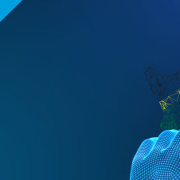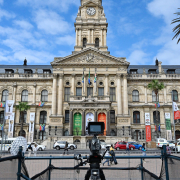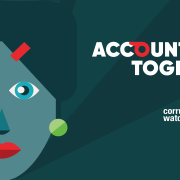|
Getting your Trinity Audio player ready...
|
By UN Development Programme
First published on Medium for UNDP
Corruption is one of the scourges of modern life. Its costs are staggering.
- Tax abuse by multinational corporations and rich people costs about US$483-billion — enough to fully vaccinate the world against Covid-19 more than three times over.
- Of the approximately US$13-trillion that governments spend on public spending, up to 25% is lost to corruption.
- International bribery is thriving — more than half of all cases are related to public spending.
- In Europe 28% of all health industry corruption cases are related to medical equipment. And in the EU one in five people pay bribes for healthcare.
- From 2000 to 2015, the illegal money leaving Africa amounted to $836-billion, about 3.7% of its GDP.
Paying in human potential
But the costs aren’t just financial — corruption is also paid for in human potential.

Corruption stands in the way of the Sustainable Development Goals (SDGs) and the 2030 Agenda. It has taken money that could have been invested in governance, social protection, transitioning to the green economy — the SDG Push designed to prevent 169-million people from being driven into extreme poverty by 2030.
Corruption in health systems accounts for an estimated 1.6% of the deaths of children under five — more than 140 000 a year.
And of the US$7.5-trillion that is spent every year on health, US$500-billion is lost to corruption.
In African countries with high levels of corruption, governments spend 25% less on health and 58% less on education.
Paying in trust and solidarity
Breakdowns in societal trust are deeply damaging and difficult to heal. Corruption undermines the stability of societies. It chips away at democracy, and jeopardises social, economic and political development, especially when its perpetrators are seen to be acting with impunity.
In crises, corruption diverts funds from essential services, such as healthcare. It cripples the effectiveness of emergency responses.
Paying with our future

Corruption is robbing us of our future as well as our present, as we wrestle at the same time with the existential challenge of climate change.
Anywhere between 1.4% and 35% of climate action funds have been lost to corruption.
“At a time when countries and communities require billions of dollars to achieve the Sustainable Development Goals, UNDP is committed to assisting countries to root out corruption from every aspect of society. United against corruption, we can accelerate the global momentum needed to address the complex development challenges that our world now faces,” says UNDP Administrator Achim Steiner.
What UNDP is doing
UNDP is working with countries to leverage the power of technology to wipe out corruption.
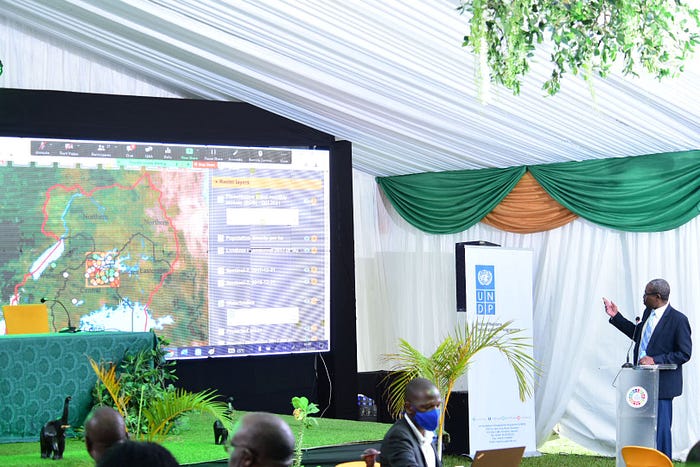
In Sri Lanka and Uganda, UNDP is using data and digital monitoring tools to tackle illegal environmental practices and promote integrity and transparency in environmental resource management.
UNDP has launched regulatory reform project in Viet Nam to reduce corruption and improve the confidence of citizens, businesses and foreign investors in public governance and the health industry.
In Nepal, Liberia and Bangladesh, the issue of public service delivery and related grievance reporting remain acute. So, these countries with UNDP’s support are deploying complaint-handling platforms and systems for citizens to lodge complaints and hold the government accountable.
In Nigeria and Tanzania, UNDP is reforming public health procurement with tech-based, open contracting, and monitoring.
In Ukraine a new e-platform supported by UNDP is increasing transparency in procurement. UNDP in partnership with EU and the National Agency on Corruption Prevention, has developed an online course to train anti-corruption officers.
Our study New Technologies for Sustainable Development: Perspectives on integrity, trust and anti-corruption explores the use of Artificial Intelligence, blockchain and big data analytics in the area of anti-corruption, reflecting the support that the ethical and responsible use of technology provides to preventing and tackling corruption.
Our report explores the linkages between Corruption and Contemporary Forms of Slavery, and offers recommendations for the international community, governments, civil society, and the private sector.
Working together
Corruption is fuelling the loss of our natural world. Ending it means we have a better opportunity to meet the needs of all people, and reclaim the legitimacy of public authorities and trust in governance.
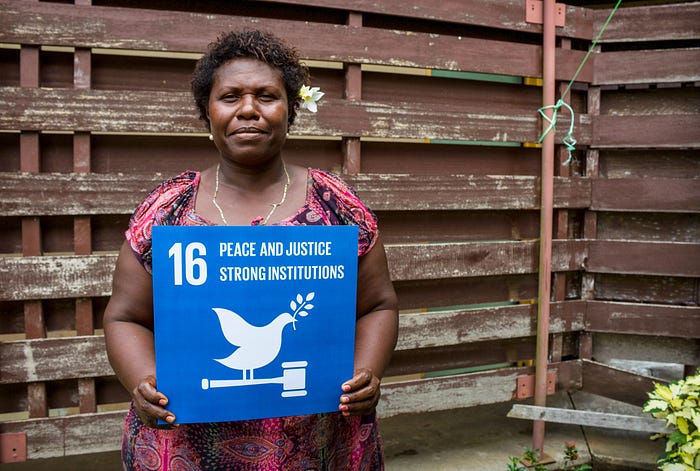
The 20th International Anti-corruption Conference is bringing together up to 2 000 heads of state, civil society, business leaders, and investigative journalists from more than 140 countries in Washington, D.C. to advance the anti-corruption agenda.
It’s up to everybody to work together. The price we are paying, both now and in the future, is too much. We cannot meet the SDGs — and finance our climate goals — without effective, transparent and inclusive governance mechanisms and institutions.

